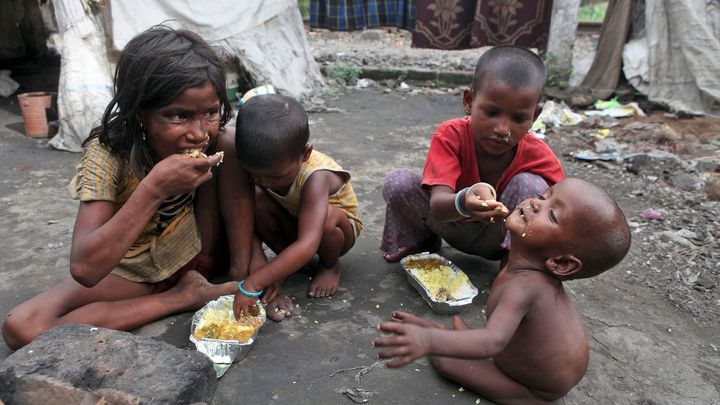
giving street children a future
Donation protected
Many of the street children who have run away from home have done so because they were beaten or sexually abused. Tragically, their homelessness can lead to further abuse through exploitative child labour and prostitution.
Not only does abuse rob runaway children of their material security, but it also leaves them emotionally scarred. Many of the abused children I-India encounters are traumatised and some refuse to speak for months. To aggravate matters, children often feel guilty and blame themselves for their mistreatment. Such damage can take years to recover from in even the most loving of environments; on the streets it may never heal.
A large proportion of the boys and girls in I-India’s homes have suffered abuse. In addition to fulfilling their material needs, we seek to provide a warm and caring atmosphere. Our vocational centres, too, are safe, fun places where children gain confidence and self-esteem. We run a help line for children in need, and, unusual amongst Indian NGOs, we employ male and female full-time counsellors to support our children’s emotional development.
Child Labour:
Most Indian street children work. In Jaipur, a common job is rag-picking, in which boys and girls as young as 6 years old sift through garbage in order to collect recyclable material. The children usually rise before dawn and carry their heavy load in a large bag over their shoulder. Rag-pickers can be seen alongside pigs and dogs searching through trash heaps on their hands and knees.
Other common jobs are the collecting of firewood, tending to animals, street vending, dyeing, begging, prostitution and domestic labour.
Children that work are not only subject to the strains and hazards of their labour, but are also denied the education or training that could enable them to escape the poverty trap.
I-India provides non-formal street schools to ensure that working children get at least a basic education. We nurture community support for our schools and seek to mainstream suitable children into the government education system. We also provide popular and practical vocational training where older children can learn skills while also earning some money.
Not only does abuse rob runaway children of their material security, but it also leaves them emotionally scarred. Many of the abused children I-India encounters are traumatised and some refuse to speak for months. To aggravate matters, children often feel guilty and blame themselves for their mistreatment. Such damage can take years to recover from in even the most loving of environments; on the streets it may never heal.
A large proportion of the boys and girls in I-India’s homes have suffered abuse. In addition to fulfilling their material needs, we seek to provide a warm and caring atmosphere. Our vocational centres, too, are safe, fun places where children gain confidence and self-esteem. We run a help line for children in need, and, unusual amongst Indian NGOs, we employ male and female full-time counsellors to support our children’s emotional development.
Child Labour:
Most Indian street children work. In Jaipur, a common job is rag-picking, in which boys and girls as young as 6 years old sift through garbage in order to collect recyclable material. The children usually rise before dawn and carry their heavy load in a large bag over their shoulder. Rag-pickers can be seen alongside pigs and dogs searching through trash heaps on their hands and knees.
Other common jobs are the collecting of firewood, tending to animals, street vending, dyeing, begging, prostitution and domestic labour.
Children that work are not only subject to the strains and hazards of their labour, but are also denied the education or training that could enable them to escape the poverty trap.
I-India provides non-formal street schools to ensure that working children get at least a basic education. We nurture community support for our schools and seek to mainstream suitable children into the government education system. We also provide popular and practical vocational training where older children can learn skills while also earning some money.
Organizer
Oliver Nordh
Organizer